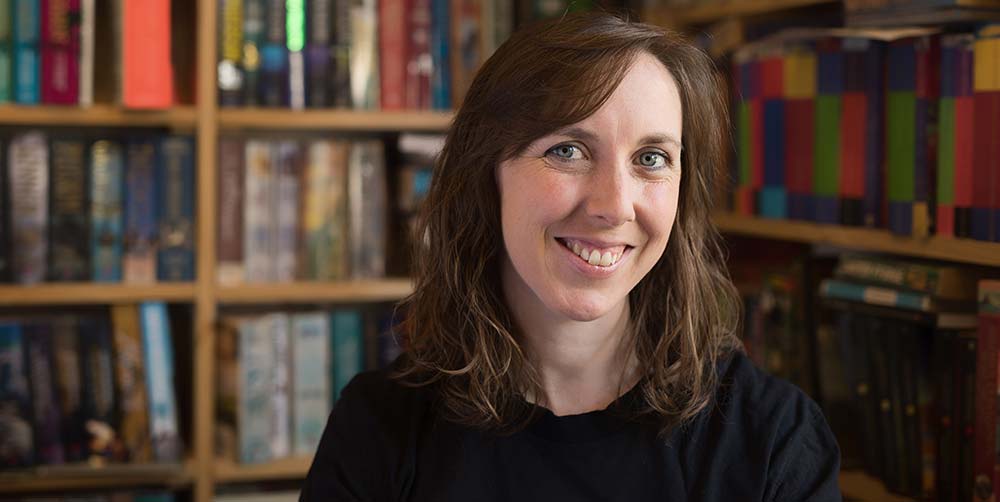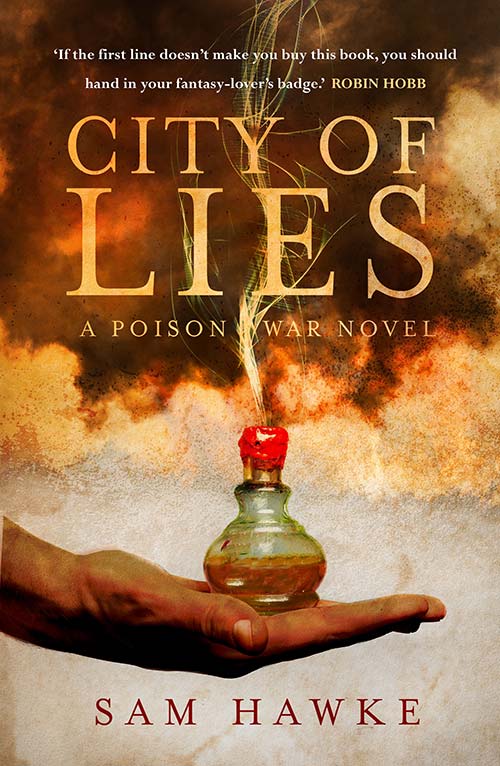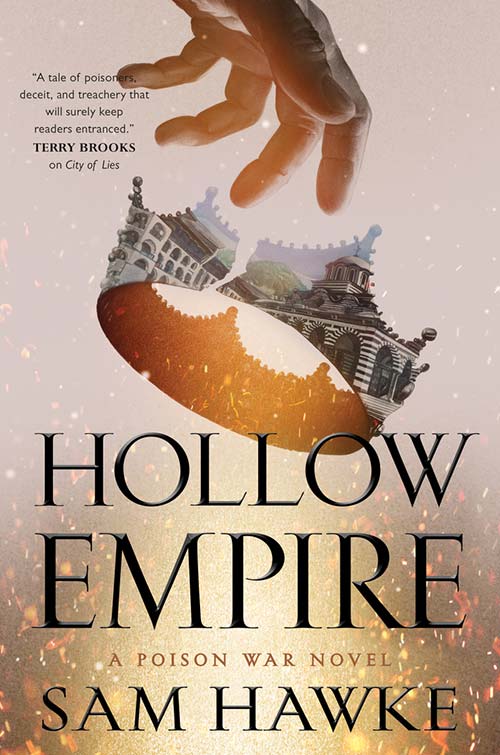
“What are you reading? Oh, fantasy? Like… elves and fairies and stuff?”
You know the tone. We’ve all heard it. I doubt there’s a fantasy reader or writer who hasn’t heard that mocking incredulity from a friend, family member, or stranger on a bus. Adult fantasy isn’t always taken seriously, and in the quest to push back against its perception of being childish or lightweight, sometimes we get a bit hung up on the concept of ‘realism’. There’s nothing wrong with realism as a concept, but there is sometimes a tendency to equate it with cynicism and pessimism. And I’m here to tell you right now that there’s no shame in needing more elves and less grimdark right now.
 Of course fantasy offers us some well-needed lot in times of global uncertainty and danger. When the world feels like a hellscape, there’s an obvious appeal to spending time in a fictional world. Fantasy worlds are often worlds of possibility, of wonder and of magic, and there’s probably some part of all of us that still hungers after the sensation we had as children first discovering books and retreating into them.
Of course fantasy offers us some well-needed lot in times of global uncertainty and danger. When the world feels like a hellscape, there’s an obvious appeal to spending time in a fictional world. Fantasy worlds are often worlds of possibility, of wonder and of magic, and there’s probably some part of all of us that still hungers after the sensation we had as children first discovering books and retreating into them.
But that’s not the real reason fantasy is valuable to us in trying times, or why I’m reaching for the hopeful, not grimdark, end of the genre these days.
Grimdark rode high a decade or two ago, showcasing worlds which were irredeemably violent and hopeless, featuring characters (especially those making world-affecting decisions) assumed to have a core of selfishness and greed that ultimately makes the protagonists’ efforts, even if well-intentioned, end up futile. Indeed, several famous grimdark examples, well-written and wildly successful series, are effectively centred around the idea that most people are just terrible, and any attempts to be kind or moral inevitably result in the character’s horrible death, or at least the utter loss of their goodness. This dark subgenre is often praised for its purported realism and held out in defence of claims that fantasy is lightweight.
And indeed it’s hard not to be cynical in 2021, hard not to believe that maybe it is realistic to believe that our world and humanity are heading for doom. Climate change, poverty and the increasing wealth gap, the rise of governments across many world powers which celebrate the worst, most selfish and greedy aspects of humanity; it’s difficult, especially as a parent, not to be frightened about the future we are leaving our children. But in light of that sense of frustration and concern in the real world, I’ve grown tired of seeing these things echoed without challenge in our fiction.
 Without challenge is the critical point. I’m not advocating for fictional utopias. Robin Hobb’s Realm of the Elderlings are my favourite books of all time and they are, in places, unbearably sad. But the books themselves never feel grim because while they recognise and explore the ways that people are messy, and change is hard, and terrible things do happen, they don’t carry the underlying message that we should just shrug our shoulders and accept it. There’s always a sense that the characters are trying for something better, trying to be better, and that such a thing isn’t not a hopeless or pointless goal (or worse, one worth mocking). Because I don’t believe that people are fundamentally bad, or that we should accept that the world cannot be better. And I don’t believe fantasy is just about escapism. Fantasy presents us with a tool with which to examine reality. It’s is the oldest kind of storytelling not because it makes readers forget the real world, but because it illuminates it. There are questions and issues that are complex and difficult in a real world context but which, when presented in a fantasy story, can be interrogated at will.
Without challenge is the critical point. I’m not advocating for fictional utopias. Robin Hobb’s Realm of the Elderlings are my favourite books of all time and they are, in places, unbearably sad. But the books themselves never feel grim because while they recognise and explore the ways that people are messy, and change is hard, and terrible things do happen, they don’t carry the underlying message that we should just shrug our shoulders and accept it. There’s always a sense that the characters are trying for something better, trying to be better, and that such a thing isn’t not a hopeless or pointless goal (or worse, one worth mocking). Because I don’t believe that people are fundamentally bad, or that we should accept that the world cannot be better. And I don’t believe fantasy is just about escapism. Fantasy presents us with a tool with which to examine reality. It’s is the oldest kind of storytelling not because it makes readers forget the real world, but because it illuminates it. There are questions and issues that are complex and difficult in a real world context but which, when presented in a fantasy story, can be interrogated at will.
For example, the genre often grapples with issues of power structures; who has power, who may it acceptably use it? A constant and consistent theme in fantasy is providing a facsimile of power (often magical abilities) and granting it to a person oppressed or marginalised (by way of poverty, religion, social class etc). A great recent example is Alix Harrow’s Once and Future Witches, set in an alternate reality in which women’s power is interrogated by linking the suffrage movement with witchcraft, so that the three sisters the subject of the story are simultaneously caught up in a battle to reclaim magic as well as to gain voting rights. In fantasy you don’t even have to be subtle with your metaphor– you can literally just lay it out on the page!
Ultimately humans learn through stories. We tell stories to overcome the seeming randomness and indifference of the world. We tell stories to make things possible. And when we experience a story that maps out with our own experiences in some way, we can see how we might make different or better choices in our real life.
This is also a reason why, as a writer, I want to tell optimistic stories. Bad things happen in my books, obviously. They’re called the Poison Wars! They start with murder, and failure, and the whole first book is set in a besieged city! There’s violence, and sadness, and danger, and I’m not trying to sell a story that the good guys always win and everything is always going to be fine. But I see being optimistic as being about writing characters who want to do better. Who make mistakes and have blind spots and regrets and flaws, but ultimately strive to be better people living in a better world. That’s hopeful. That teaches readers something, too, about resisting darkness and indifference. That it’s something you can do, something you should do, even when — maybe especially when—the world looks grim. That’s the kind of realism I believe in.
You can find more details on Sam Hawke here.









